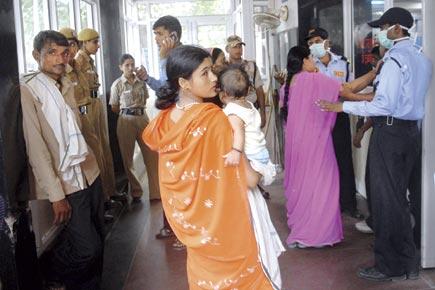Hospital stays in India are traumatic. Nothing less. Just like school life, dating, commuting, train journeys and paying taxes in India

 Hospital stays in India are traumatic. Nothing less. Just like school life, dating, commuting, train journeys and paying taxes in India. This article is not a guide for survival at a government -aided or -run hospital, because for that you need active intervention of God and fate. Nor is it a survival manual for every hospital run in India. This is just my personal experience at several swanky hospitals in Delhi.
Hospital stays in India are traumatic. Nothing less. Just like school life, dating, commuting, train journeys and paying taxes in India. This article is not a guide for survival at a government -aided or -run hospital, because for that you need active intervention of God and fate. Nor is it a survival manual for every hospital run in India. This is just my personal experience at several swanky hospitals in Delhi.
ADVERTISEMENT
1. Have Plenty Of Money: Everything is expensive. There will be a million tests because nothing is prescribed by just checking your pulse and your throat anymore. You twist an ankle and your whole body will be scanned. And you dare not say no because well, who knows, there could be a clot in your foot that could travel to your brain. So just do it. Get the test done and pay.

You will be bullied every step of the way. Even if you have an appointment and have paid in advance, there is no guarantee that somebody more influential will not be given preference. File Pic
2. Know your way around: Hospitals are a maze, and you have to figure out where the doctors are hidden in this maze. Nothing is where it is supposed to be. The Out Patient Department is actually the In Patient Department. That is where you wait interminably for doctors to see you and tell you that you need to be hospitalised. Or go for the gazillion tests before they justify your hospitalisation. And the OPD could be anywhere in the hospital. Ask the smiling hostesses who will guide you. But there are burly security guards who will stop you. Have smart answers ready. There are signs of course, but hey we are Indians! We have a healthy disrespect for signs. They are often erroneous.
3. Polite but firm: You will be bullied every step of the way. Pay in advance, wait interminably for doctors and technicians. Even if you have an appointment and have paid in advance, there is no guarantee that somebody more influential will not be given preference. Rules are there only to be broken by those who bully or look moneyed and influential. If you get a raw deal, don’t raise your voice. Use other means, like step 4.
4. Don’t you know who I am? Yes, you have to use this. And you have to be someone or know someone to push the envelope further. Waiting for your turn is a fruitless exercise. It rarely comes. So use whatever pull and push you have to get what you want done, whether better service, or more clarity. This is your health or your loved one’s health you are dealing with. Just lay your principles of fair play to rest.
5. Learn some Malayalam: I am not kidding. Nurses and technicians are from Kerala and they all converse in Malayalam. If you want to understand what they are saying to each other about you or your family member, learn a bit of the language. Also, you will immediately establish kinship. Malyalalees form tight knit communities everywhere. Get in. I found a link. My mother’s paternal family is from Kasargod, though she has never been there and doesn’t speak a word of the language. She doesn’t even eat meen moily, being a vegetarian. Minor matter, I use that connection every time I want a report from the radiology dept or from the ICU. One extra copy for me when they make the file for the doctor. Jai Kerala!
6. Doctors and their jargon: Figure out the difference between SGPT and SGOT or EEG and ECG and ICU and HDU. You have no option. Even if you do the helpless act, nobody in the hospital will patiently explain it to you. Google guru is good but can ring alarm bells too, so ask, keep asking.
7. Get help: Find relatives, friends and neighbours to help you get second opinions for everything. Is the bone really broken that you need it fixed? Do you need one or two stents? Is the doctor a shark in a lab coat? Ask the nurses and doctors in other hospitals. They don’t squeal on their colleagues, but there are ways. Find them. But go through this exercise with a beguiling smile and never let the doctor know that you are auditing him or her on a constant basis. Doctors are like school principals. They are used to being treated as quasi-gods. And the fact that they save lives elevates them to that level. Just like teachers, who you entrust your children with.
8. Thank you: If you have survived the Indian Hospital Experience and come out healed and healthy, don’t forget to thank those who helped you get better. Jaan hai, Jahaan hai was not just a Doordarshan show.
Smita Prakash is Editor, News at Asian News International. You can follow her on twitter @smitaprakash
 Subscribe today by clicking the link and stay updated with the latest news!" Click here!
Subscribe today by clicking the link and stay updated with the latest news!" Click here!






